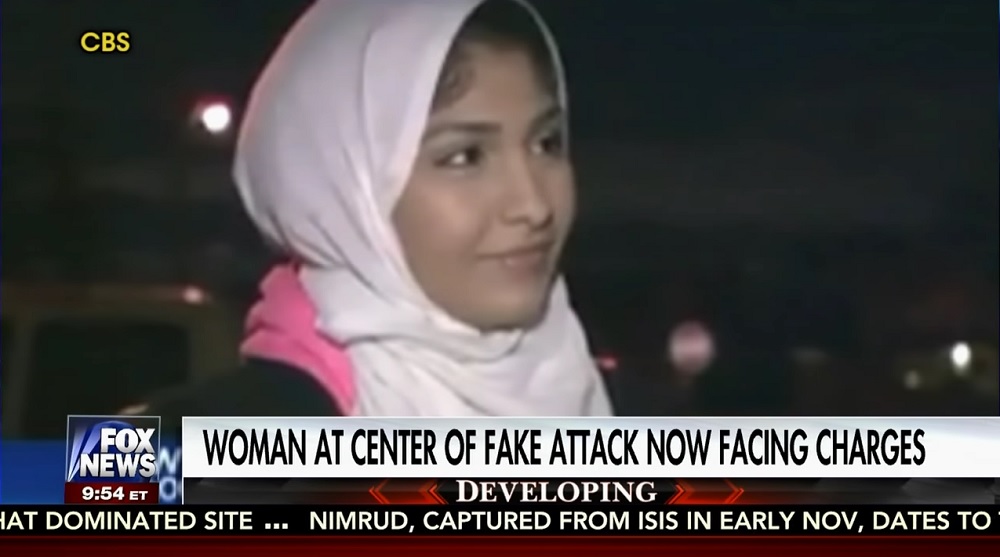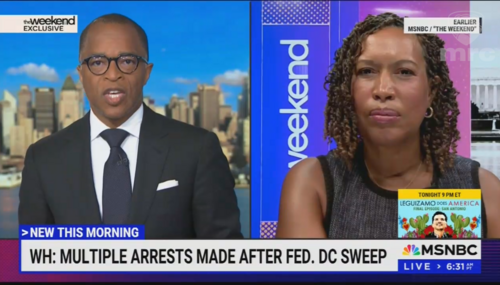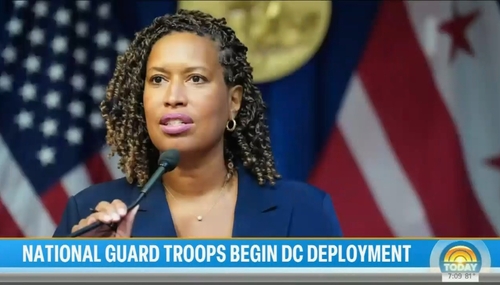 On Thursday, Newsweek's Lucy Westcott forwarded possible excuses for Yasmin Seweid's fake account about anti-Muslim men attacking her on New York City's subway. Westcott spotlighted an activist who played up that young Muslim women, like Seweid, are "children of either immigrant parents or U.S.-born Muslims, and parents have high expectations of them, putting [them under] tremendous pressure." She also pointed out an online post from Seweid's sister, who asked people to "think why Muslim [women of color] felt the need to do this."
On Thursday, Newsweek's Lucy Westcott forwarded possible excuses for Yasmin Seweid's fake account about anti-Muslim men attacking her on New York City's subway. Westcott spotlighted an activist who played up that young Muslim women, like Seweid, are "children of either immigrant parents or U.S.-born Muslims, and parents have high expectations of them, putting [them under] tremendous pressure." She also pointed out an online post from Seweid's sister, who asked people to "think why Muslim [women of color] felt the need to do this."
Westcott led her item, "Yasmin Seweid's Arrest Highlights Pressures on Some Muslim Teenage Girls," by reporting how Seweid was "arrested on Wednesday after admitting to fabricating her story. She was arraigned at Manhattan Criminal Court early Thursday morning and appeared to be in shock, her head shaved and uncovered." As she summarized the circumstances of the hoax, the writer underlined that "Seweid was one of many Muslims to report being harassed in the wake of Donald Trump's election and to have their stories picked up by the media."
<<< Please support MRC's NewsBusters team with a tax-deductible contribution today. >>>
The journalist set up her multiple quotes from Robina Niaz of the organization Turning Point for Women and Families by noting that "according to reports by multiple media outlets, she made up the story due to family pressures at home, and because she didn't want to tell her father that she was out drinking with friends past her curfew." According to Niaz, "the pressure on Muslim women and girls, especially those who wear head coverings and are visibly Muslim, is enormous, especially since Trump's election."
The activist lamented how the suspect is "being attacked now, both from within and outside the community." Niaz also claimed that "some members of the Muslim community have turned against Seweid and her family, worried that her arrest means people won't believe real hate crimes when they happen." She then offered this excuse:
"I'm not condoning her behavior at all. It's understandable that Muslims, including myself, are upset and worried, but I feel we need to pay even more attention to young women and the kind of support and help we can provide them, so that anyone else who is struggling with things at home or outside feels a little safer talking about them and getting help," she [Niaz] says.
Westcott soon added that "in the 10 days after Trump's election, nearly 900 hate incidents were reported around the country, according to a study by the Southern Poverty Law Center. Around six percent of them were directed at Muslims, or people who were perceived to be Muslim."
After giving her "tremendous pressure" phrase, Niaz explained that "to be a teenager is difficult as it is. Add to that peer pressure, that comes from their non-Muslim friends and classmates who wonder why they can't drink, or date or be out late, or why as adults they still stay with their parents...How does a teenager, or a young person, balance all of that? What was going on that scared her so much that she had to make up a story like this?"
Near the end of her article, Westcott cited Seweid's sister's Facebook post, with its "think why Muslim [women of color] felt the need to do this." However, the journalist left out that the sister ranted against the NYPD's investigation of the fake attack: "The NYPD doesn't care about us or our safety. Never did." Westcott also excerpted a statement from CAIR's Albert Fox Cahn, who also echoed Niaz's reaction to the hoax: "We're very disturbed by these distressing developments, but we hope that they do not detract from the numerous valid reports coming from the Muslim community. This isolated incident doesn't diminish from the fact that anti-Muslim harassment, discrimination, and hate crimes remain systematically underreported."




